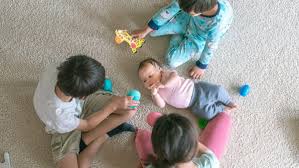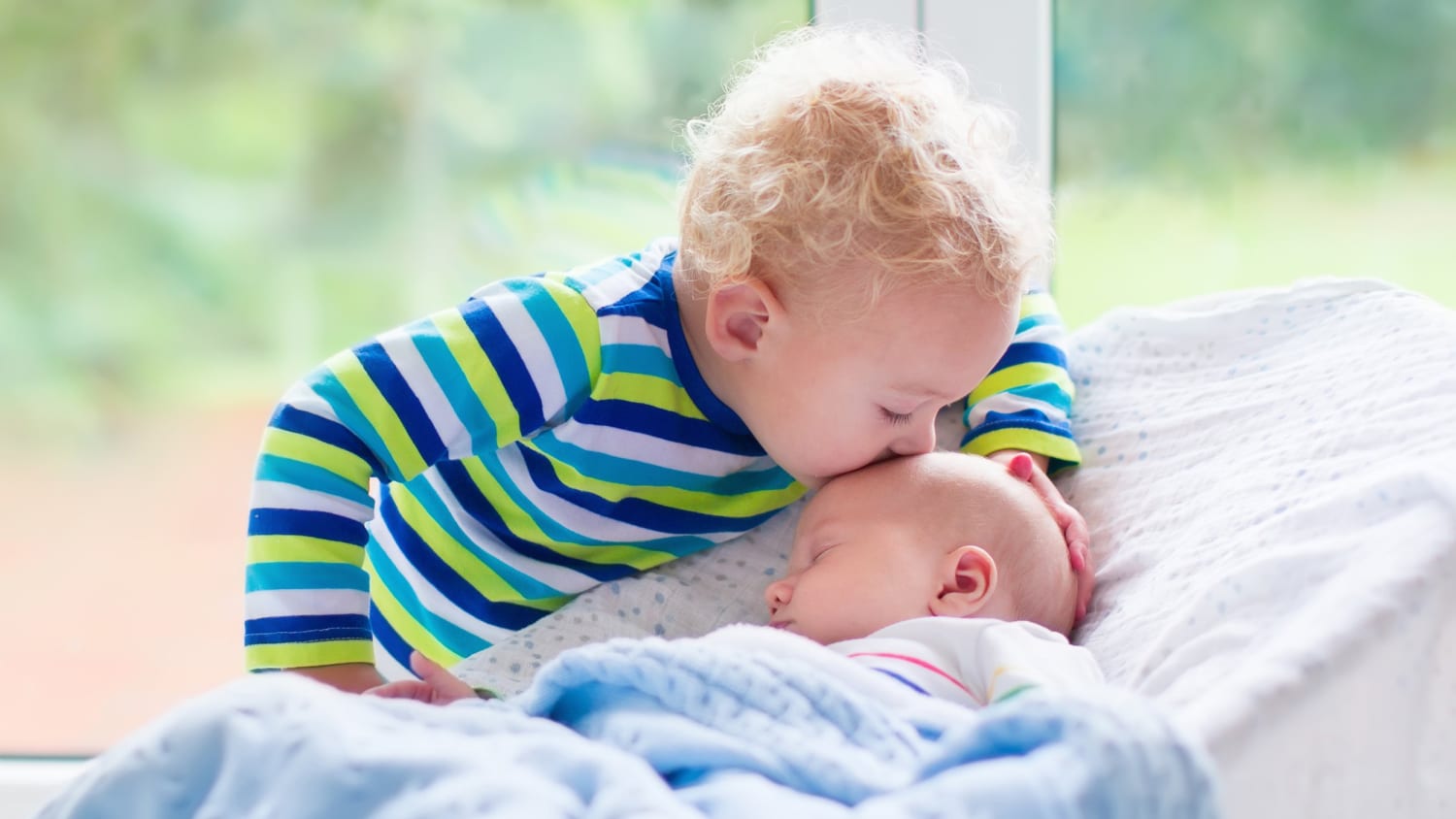Bringing a new baby into the family is an exhilarating experience, but it can also be a time of profound adjustment for older siblings. As parents, you find yourselves in the delicate role of caring for a newborn while ensuring your firstborn still feels loved, secure, and heard. It’s a balancing act that requires empathy, flexibility, and a willingness to lean on your support network.
The Emotional Landscape of Sibling Adjustment
When a new baby arrives, children often react with a complex mix of emotions. Some may greet the newcomer with unbridled excitement, showering their sibling with affection and eager anticipation. Others may grapple with intense feelings of jealousy, manifesting in disruptive behaviors like tantrums, boundary-testing, or even regressions in areas like sleep or potty training.
The age of your firstborn plays a significant role in shaping this transition. Younger children, typically between 2-3 years old, tend to have more difficulty with emotional regulation. The arrival of a sibling can trigger outbursts and acting-out behavior as they struggle to express their feelings.
Slightly older children, around 4-5 years of age, often have a better grasp of different perspectives. They may try to actively help soothe their sibling when they cry. However, this age group is also more prone to teasing, testing limits, and vying for your undivided attention.
Regardless of age, most children will exhibit some degree of adjustment challenges. It’s important to remember that these behaviors, while trying, are a normal part of the process. They don’t reflect poorly on your parenting abilities – in fact, they’re a sign that your child is working through significant emotional changes.

Easing the Transition for Your Firstborn
As you navigate this transition, keep in mind that your firstborn is also going through a major life event. Their world is being reshaped, and they’re being asked to share your time, energy, and affection. With empathy, creativity, and a willingness to lean on your support system, you can help your older child adjust and embrace their role as a big sibling.
Carve Out One-on-One Time
In the whirlwind of caring for a newborn, it can be easy to inadvertently neglect the needs of your firstborn. Make a concerted effort to set aside special moments just for the two of you. Whether it’s a quick game, a bedtime story, or a trip to the park, this dedicated attention can go a long way in reassuring your older child that they are still cherished.
These one-on-one interactions don’t have to be elaborate or lengthy. Even 15-20 minutes of undivided focus can make a world of difference, reminding your firstborn that they still have a meaningful place in your life.
Lean on Your Support System
Raising multiple children is a demanding endeavor, and it’s crucial that you don’t try to shoulder the burden alone. Reach out to your family, friends, and community for help – whether it’s a grandparent offering to babysit, a friend dropping off a home-cooked meal, or a neighbor lending a listening ear when you need to vent.
Feeling supported, both practically and emotionally, can make all the difference in managing the challenges of this transition. Studies have shown that primary caregivers who share responsibilities with a partner or have a strong support network report lower levels of stress, depression, and fatigue.

Encourage Sibling Bonding
If your older child shows interest in the new baby, find ways to involve them in gentle, age-appropriate tasks. Let them help with things like singing lullabies, handing over a toy, or even helping to diaper or bathe the baby (under close supervision, of course). This fosters a sense of inclusion and can help nurture the sibling relationship from an early stage.
Keep in mind that your firstborn may also need some space and time to warm up to their new sibling. Avoid forcing interactions, and instead, create opportunities for them to engage at their own pace. The goal is to help them feel invested in the baby’s well-being without adding additional pressure.
Choose Your Battles
When your older child acts out in an attempt to regain your attention, it can be tempting to respond with harsh discipline. However, this approach may inadvertently reinforce the very behaviors you’re trying to discourage. Instead, try to redirect their energy towards positive activities and reinforce good behavior with your attention and praise.
The key is to avoid getting drawn into a negative feedback loop. By choosing your battles and focusing on rewarding the behaviors you want to see more of, you can help your firstborn navigate this transition in a healthier way.

Fostering Empathy and Resilience
Navigating the addition of a new family member can be challenging, but it’s also an opportunity for growth – both for your children and for you as parents. With patience, understanding, and a supportive network, you can help your older child adapt to their role as a big sibling.
As they learn to share your affection and attention, they’ll also gain invaluable lessons in empathy, cooperation, and the lifelong bond of siblings. These skills will serve them well not only in their relationship with their new sibling but also in their broader social interactions and future endeavors.
Moreover, witnessing their older child’s resilience can be a profoundly rewarding experience for parents. Seeing your firstborn rise to the occasion, develop compassion, and embrace their role as a big sibling is a testament to their emotional maturity and the strength of your family’s bond.
Building a Lifelong Sibling Bond
While the initial adjustment period can be rocky, the long-term benefits of welcoming a new sibling are immense. Siblings share a unique and irreplaceable relationship, one that often lasts a lifetime. By supporting your firstborn through this transition, you’re laying the foundation for a lifelong friendship, filled with laughter, shared experiences, and unbreakable trust.
As your children grow, their sibling bond will continue to evolve. They may bicker and compete, but they’ll also learn to lean on one another, offering comfort, companionship, and a deep sense of belonging. Siblings often become each other’s closest confidants, sources of support, and partners in navigating the ups and downs of life.

Embracing the Emotional Rollercoaster
The arrival of a new baby is an exhilarating, yet challenging, chapter for any family. As parents, you’ll navigate a whirlwind of emotions, from the pure joy of welcoming a newborn to the occasional frustration of managing sibling dynamics.
But through it all, remember that this is a temporary season of adjustment. With empathy, flexibility, and a willingness to ask for help, you can guide your family through this transition. And as your children learn to share your affection and support one another, you’ll witness the blossoming of a bond that will enrich their lives for years to come.
The journey of adding a new sibling to the family may not always be smooth, but it is a profound opportunity for growth, connection, and the creation of cherished memories. Embrace the emotional rollercoaster, lean on your resources, and savor the moments of wonder and laughter that come with watching your family expand.

